How to Stay Hydrated in the Winter
It can be easy to forget to drink when we’re not sweating all day or spending as much time outside due to the colder weather and shorter days. Many people associate dehydration with sweltering summer days or overexertion in hot and humid climates, but dehydration still occurs in the Winter and colder months. Here are some things you should know about winter dehydration and tips to stay hydrated year-round!
Just as the name suggests, dehydration is the lack of hydration in the body and occurs when the body doesn’t have enough fluid to function correctly. Try to stay in tune with your body to recognize dehydration signs and remember to drink more water. Some symptoms include thirst, darker urine, dizziness, fatigue, and dry skin and lips.
You may be surprised to hear that staying hydrated in the summer can be easier than in Winter. Some people are less thirsty in cold weather or focus on drinking hot beverages rather than water. And, since we often use sweat as an indicator of the need to drink water, we can forget in the Winter, when we aren’t sweating as much. But the fact of the matter is, your body is losing moisture all day, every day, and needs to be replenished, regardless of temperature.
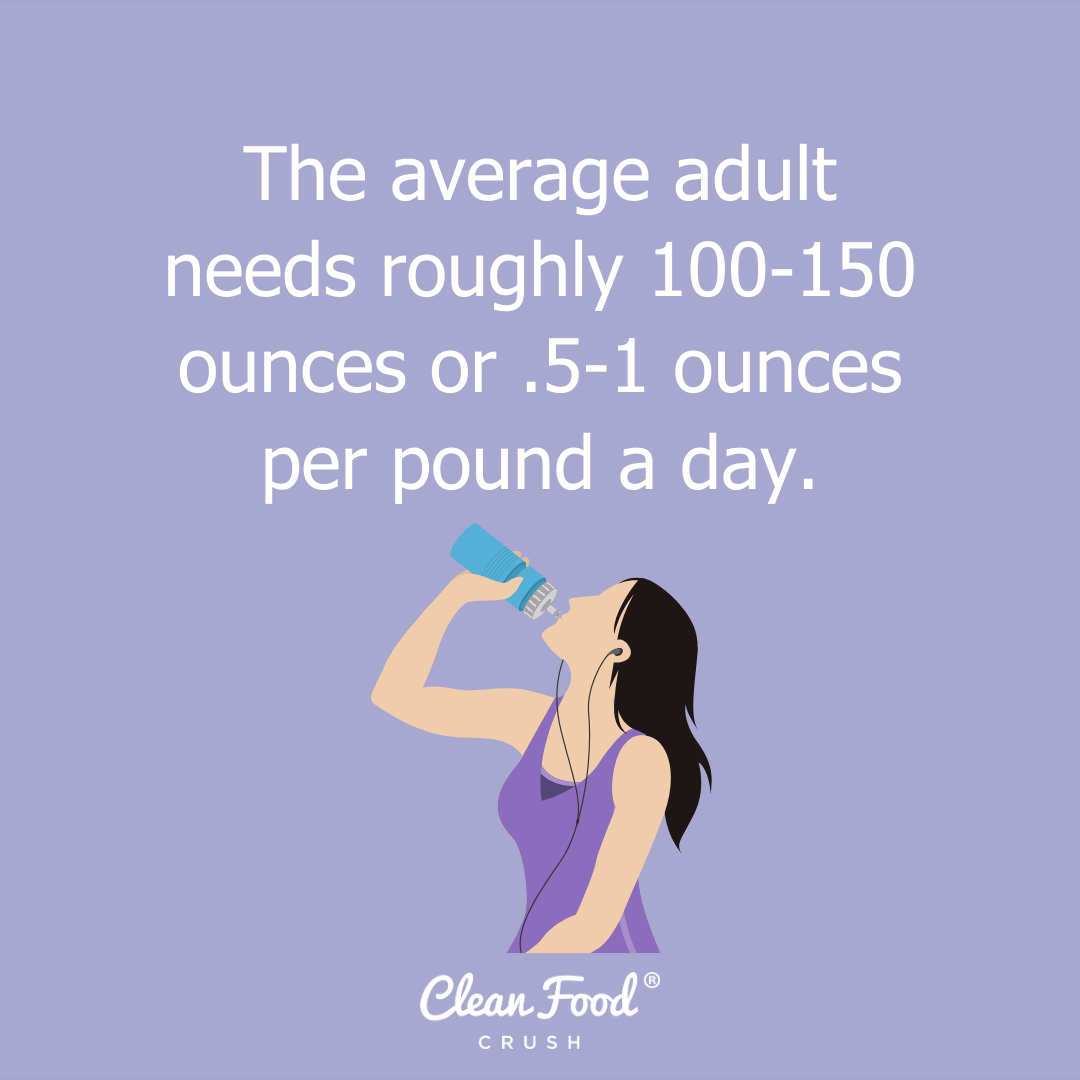
Here are 7 tips for staying hydrated in cold weather:
1. Set a Drinking Goal
The first, most obvious, and essential way to stay hydrated is to drink more water. So, start by setting a goal! This is the easiest way to track your water consumption, and you can make it even easier by using apps like Hydrate Daily to help achieve your goals. Find out how much water you need, and set a realistic yet high goal, so you’re getting as much water as possible but still feeling good about reaching the goal.
 PRO-TIP: Use a straw! Many people find that it’s easier to drink quicker and more with a straw.
PRO-TIP: Use a straw! Many people find that it’s easier to drink quicker and more with a straw.
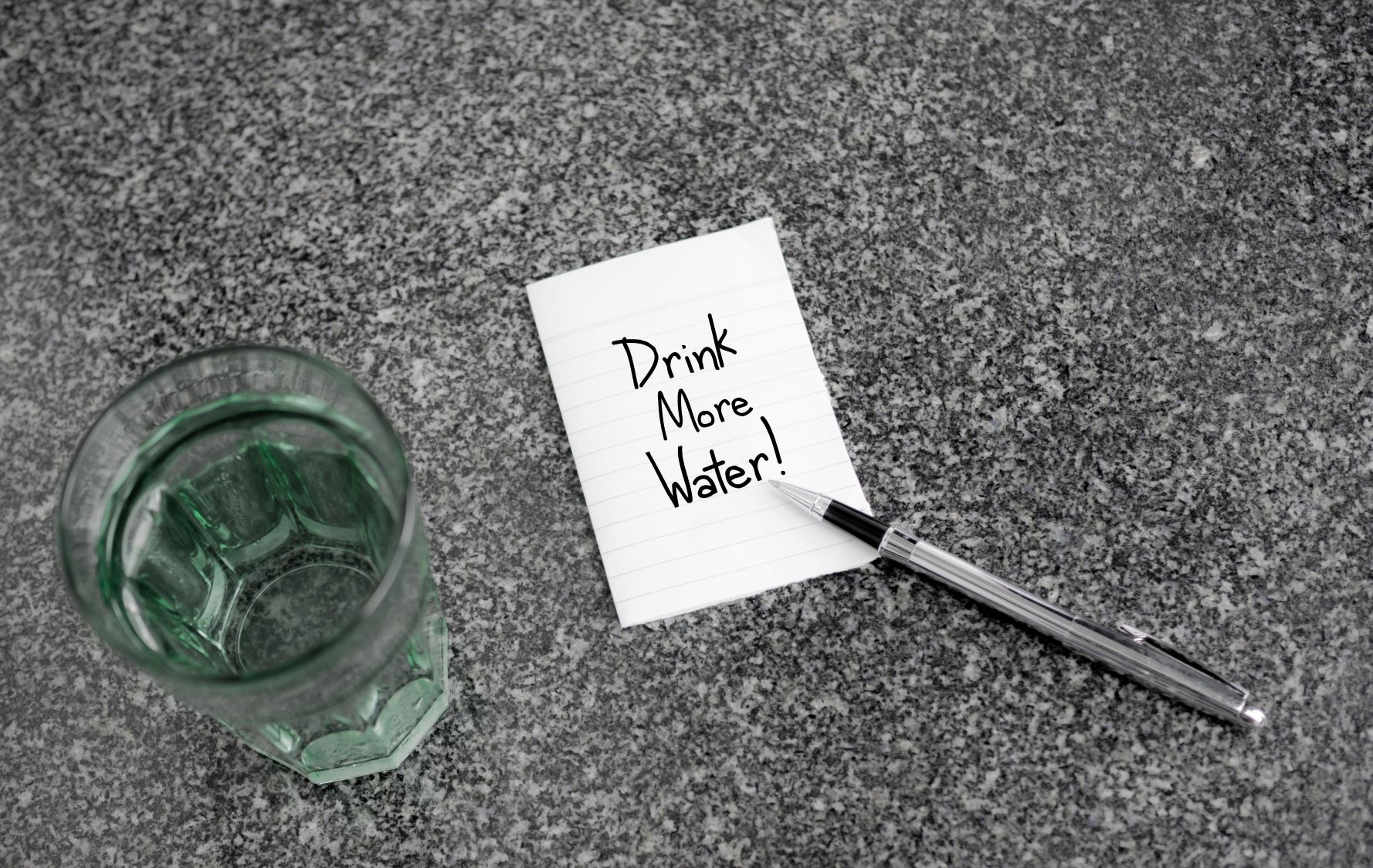
2. Surround Yourself with Reminders
There are so many things that can remind you to drink water. Everything from the alarm on your phone to your urine can be a great reminder. Also, get yourself a reusable water bottle so you can ALWAYS have water with you and every time you look at the bottle, take a quick sip! If you usually carry water with you during the summer, continue the habit through the winter.
Allow physical activity, both intense and slow, be a reminder to drink! You’ll need to replenish fluids after any type of physical exertion, whether you feel yourself sweat or not.
It’s inadvisable to rely on thirst and sweat to remind you to drink water, especially in the Winter, so make it a point to drink no matter what at specific points throughout the day.
Finally, your time in the bathroom can be a GREAT reminder to drink water. If your urine is pale and plentiful, you’re well-hydrated. If it’s dark and scant in volume, you need to drink more fluids.
 PRO-TIP: If you keep a health journal, add a section for your water intake!
PRO-TIP: If you keep a health journal, add a section for your water intake!
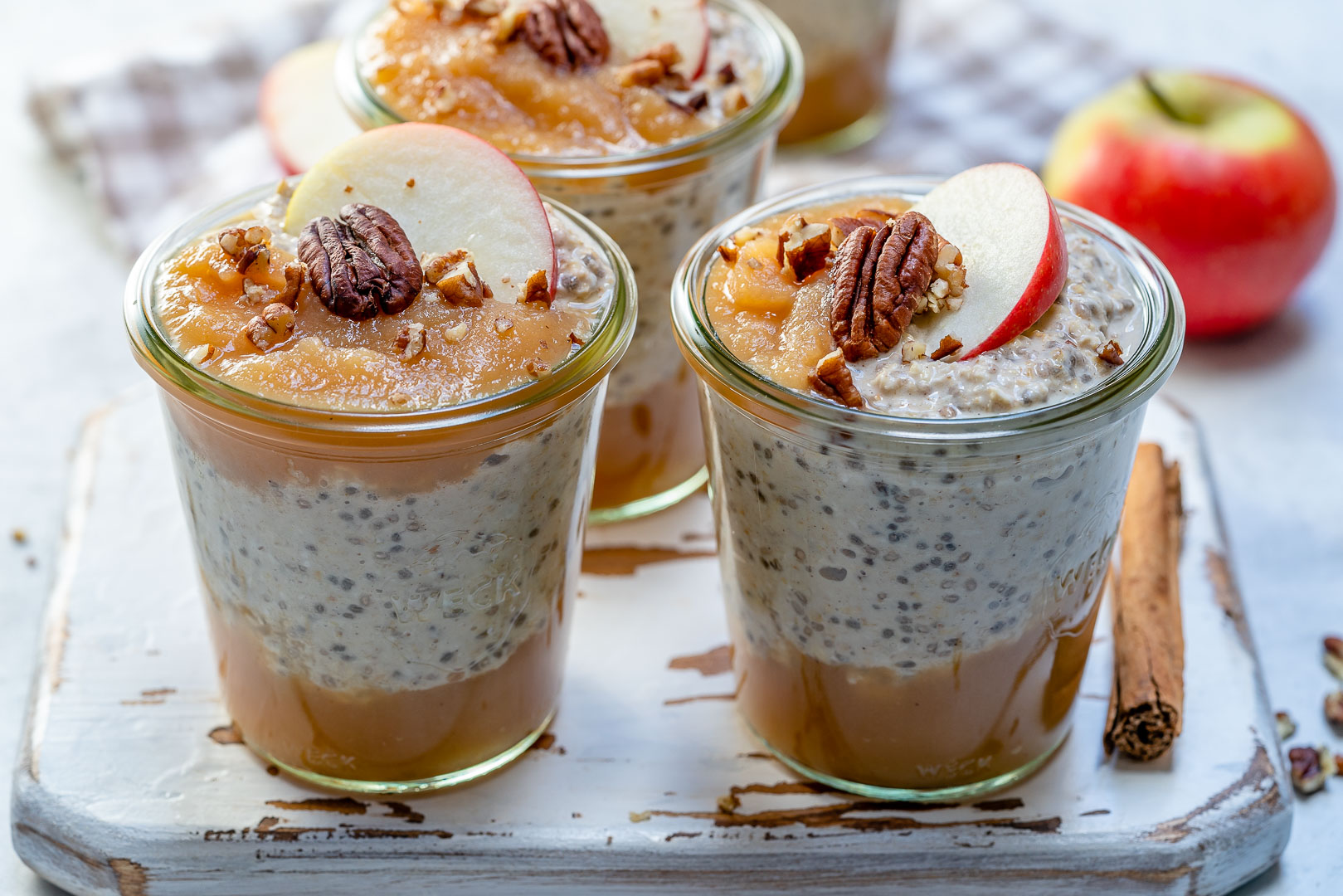
3. Don’t Neglect Your Diet
Have you ever heard the phrase, “Eat Your Water”? Basically, it means you can get water from the foods you eat, especially by choosing more hydrating and fluid-rich foods such as oranges, oatmeal, cantaloupes, celery, strawberries, and yogurt. Fruits and vegetables are the BEST sources of hydration in your diet. Try making different soups with seasonal vegetables and herbs to provide warmth, variety, and nourishment and hydration to your body. If you need some ideas or inspiration, check out these different soup recipes.
Not only can you add things to your diet to stay hydrated, but you can also avoid or limit some foods. Specifically, try to avoid fried and processed foods (such as pastries, potato chips, white bread, and frozen pizza) as they siphon out moisture from your body.
 PRO-TIP: Fruits contain vitamin C are often full of water and help fight off the flu.
PRO-TIP: Fruits contain vitamin C are often full of water and help fight off the flu.
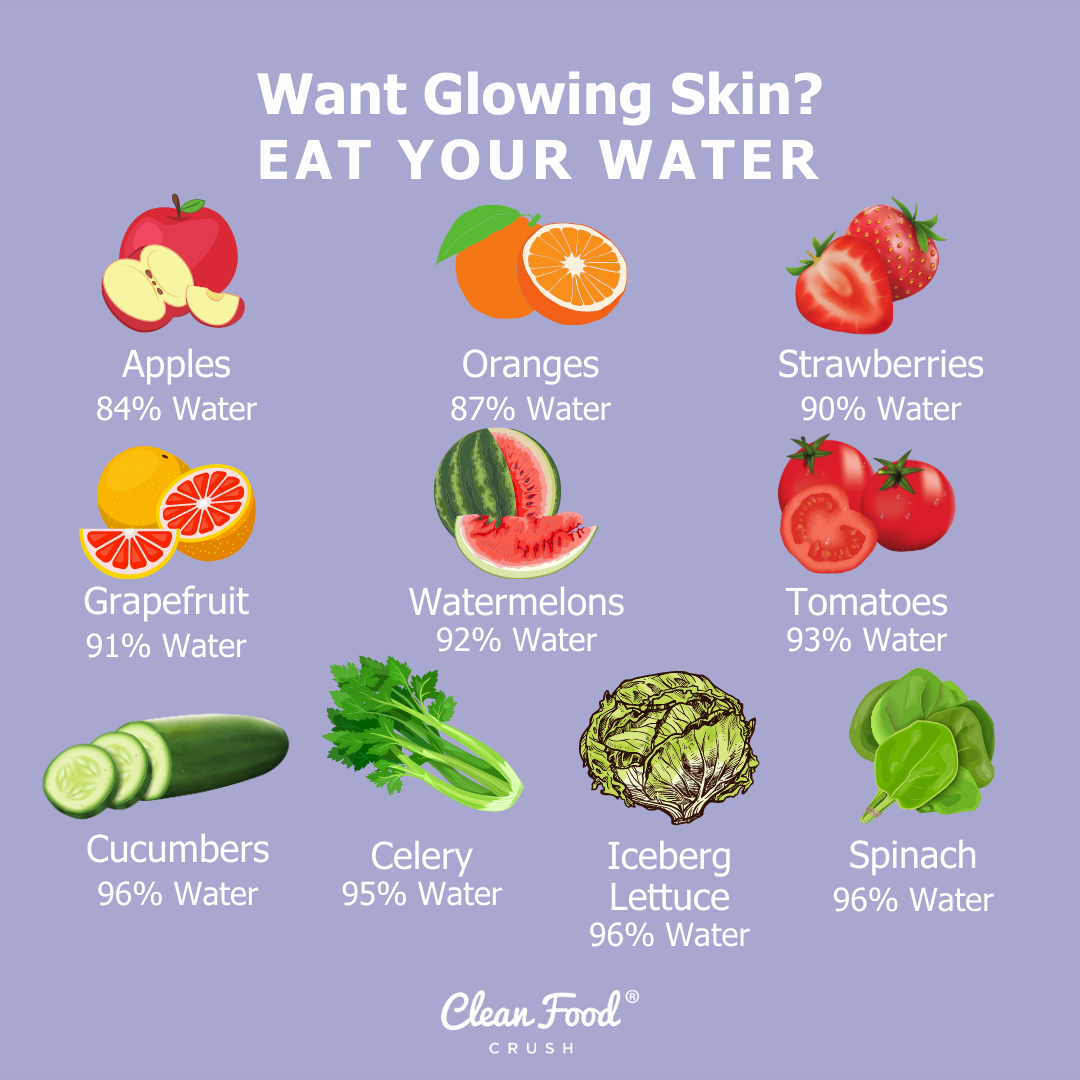
4. Treat Your Skin Right
Your skin needs hydration too! And while the (arguably) most important part of hydrating your skin is drinking enough water, you can also use moisturizer, sunscreen, and lip balm. Pamper yourself with face masks and sheets, which are often packed with hydrating ingredients and can help keep your skin plump and moist, reducing fine lines and dark circles. Also, make sure you’re using serums, creams, lotion, and sunscreen to prevent UV damage and dehydration. When picking skin care products, try finding water-based, hydrating creams that will best penetrate the skin and deliver vital water to arid areas.
Look for the following hydrating ingredients:
- Hyaluronic Acid – Helps maintain skin’s elasticity.
- Glycerin – Popular ingredient that relieves skin from feeling dry and itchy.
- Urea – Loosens and breaks down hardened protein, relieving your skin of roughness and itchiness.
- Ceramides – These makeup and repair your skin’s barrier, which prevents water loss. It’s like the cement that supports the bricks of a building.
- Panthenol – Imparts moisture to the skin cells.
 PRO-TIP: In addition to these products, try avoiding hot and long showers. I know, it’s odd to think about because you’re literally submerged in water, but bathing for long hours can actually eradicate your skin’s barrier and cause the loss of moisture and necessary oils.
PRO-TIP: In addition to these products, try avoiding hot and long showers. I know, it’s odd to think about because you’re literally submerged in water, but bathing for long hours can actually eradicate your skin’s barrier and cause the loss of moisture and necessary oils.
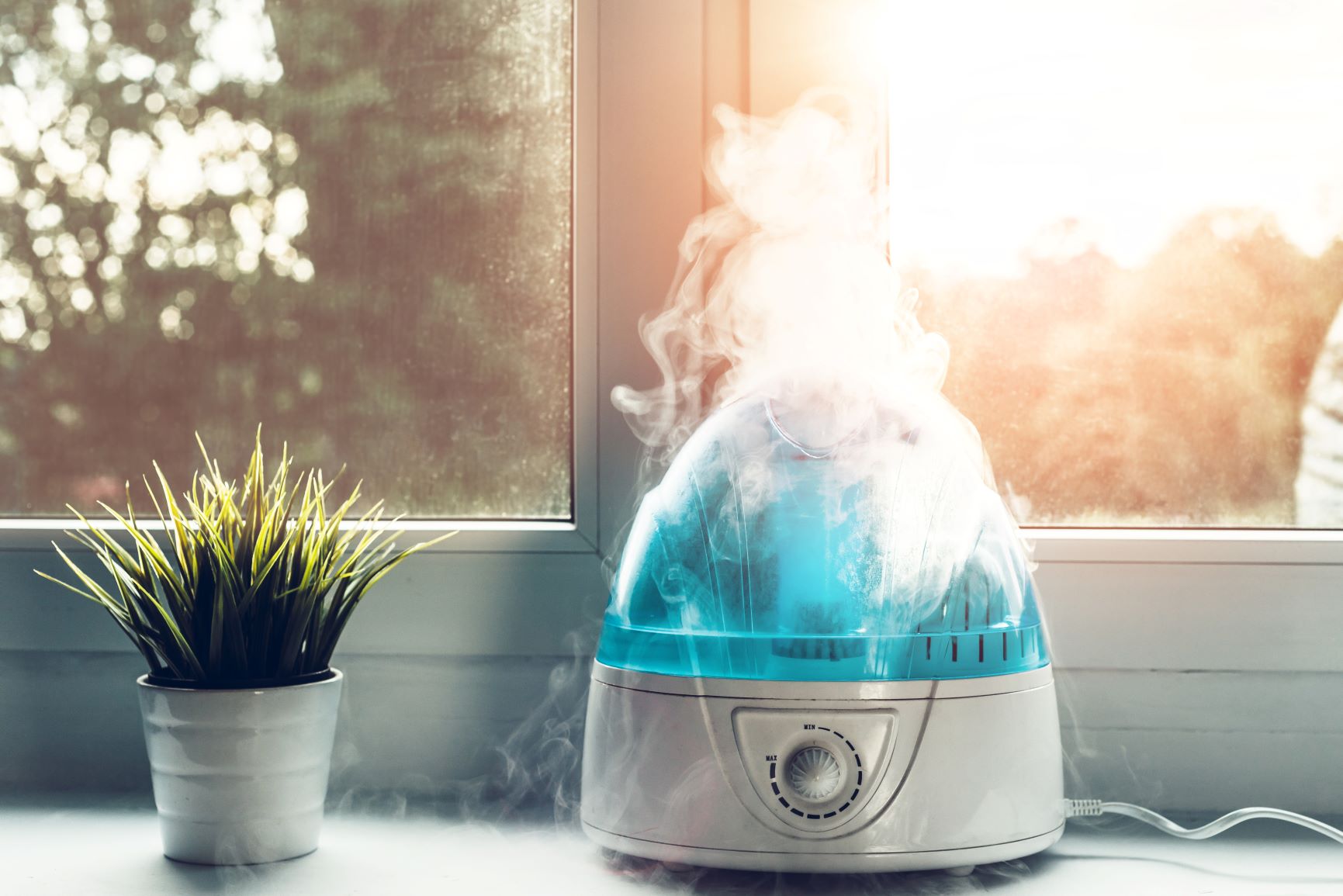
5. Invest in a Humidifier
Fight dehydration by setting a humidifier, which can be used when the moisture content in the air around you is low. I’ve found using a humidifier is especially helpful in these dry Winter months. You may also want to try a diffuser to add some essential oils for a little bonus.
 PRO-TIP: Growing indoor plants like peace lily, English ivy, snake plant, and Boston fern can naturally humidify a room.
PRO-TIP: Growing indoor plants like peace lily, English ivy, snake plant, and Boston fern can naturally humidify a room.
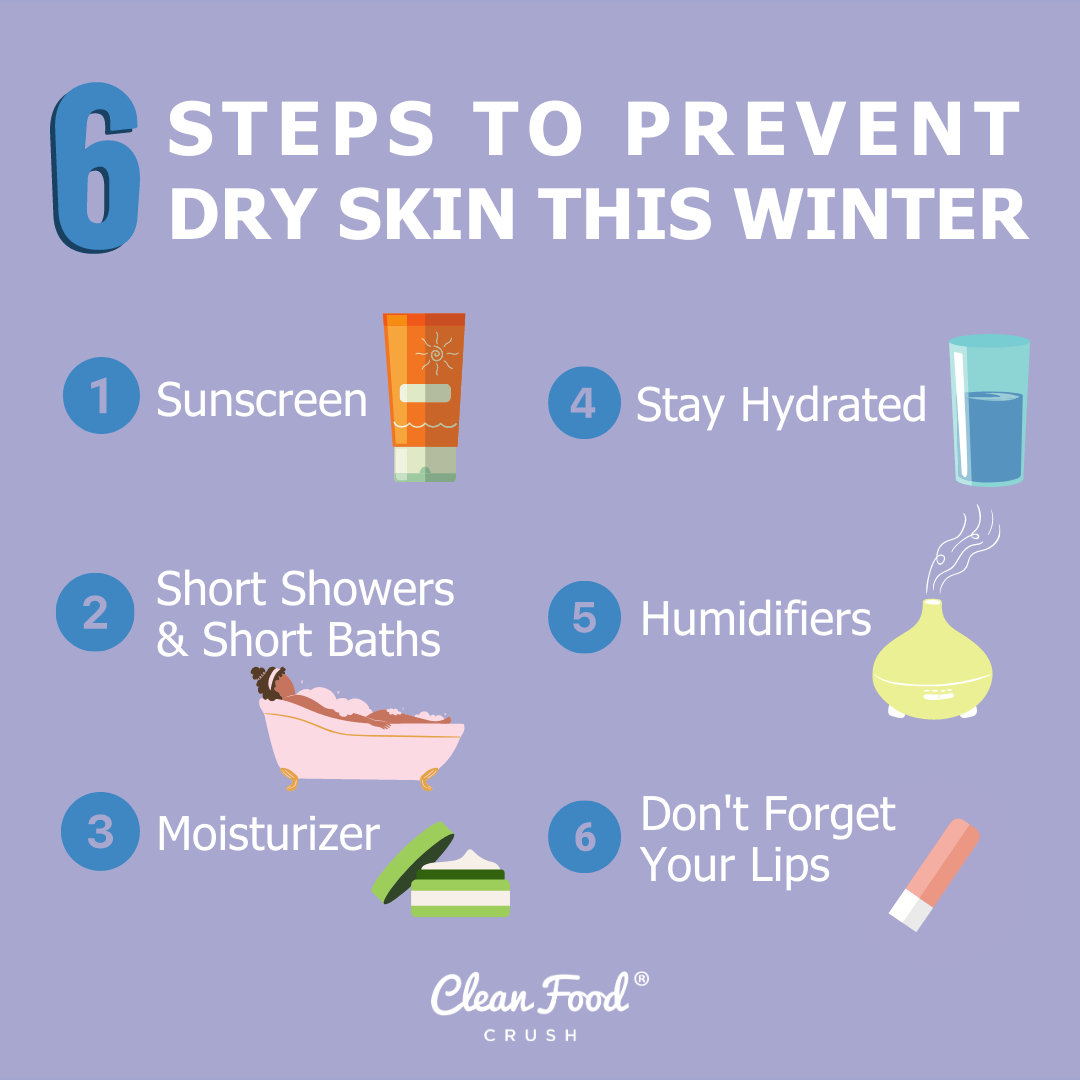
6. Avoid Dehydrates
Alcohol, caffeinated drinks, sports drinks, and energy drinks can often cause dehydration, especially if consumed in high quantities. Caffeine and alcohol have diuretic effects, which means they make you pee more, thus dehydrating you. Cutting back on these can help your body retain water this winter.
 PRO-TIP: You can still enjoy your coffee and tea; just try picking some that are decaffeinated.
PRO-TIP: You can still enjoy your coffee and tea; just try picking some that are decaffeinated.
7. Warm Up And/Or Flavor Your Fluids
Some people find it challenging to drink water when it’s cold outside, especially if they don’t like lukewarm water. If you’re one of these people, you may do better enjoying warm beverages instead of straight water! Decaffeinated hot tea, green tea, herbal tea, hot chocolate, or hot cider is often a delicious and great way to get fluid in your body during these colder months. You can also warm up some water and drink it that way, plain or infused.
If hot and warm drinks aren’t your thing, don’t be discouraged yet! You can also drink smoothies or add flavoring to your water, like lemon, lime, mint, basil, or other fruit infusions.
 PRO-TIP: Try sparkling water or seltzers if you’re craving carbonation and sodas!
PRO-TIP: Try sparkling water or seltzers if you’re craving carbonation and sodas!
Many of us don’t know how much water we need; much less are we drinking enough. While there are many determining factors, such as size, weight, location, and activity level, about how much water you should drink, the average adult needs roughly 100-150 ounces (or ¾ a gallon-1 gallon). To make it more personalized, you should try to drink between half an ounce and an ounce of water for each pound you weigh every day. For example, if you weigh 200 pounds, you should be drinking 100-200 ounces of water a day.
I know that can sound overwhelming, but when we get in the habit of drinking water, we can fight off dehydration, even in these Winter months. So, I hope some of these tips help you stay happy, hydrated, and healthy, and you have an incredible Holiday season! 

—————————-
Need a Support Network to Help Keep You on Track?
The CleanFoodCrush 30 Day Clean Eating Challenge come with support that our members swear by. There’s no need to tackle your health goals alone this winter, Join the Challenge and get the support that brings success to new members weekly!

from Clean Food Crush https://ift.tt/37wJS1I

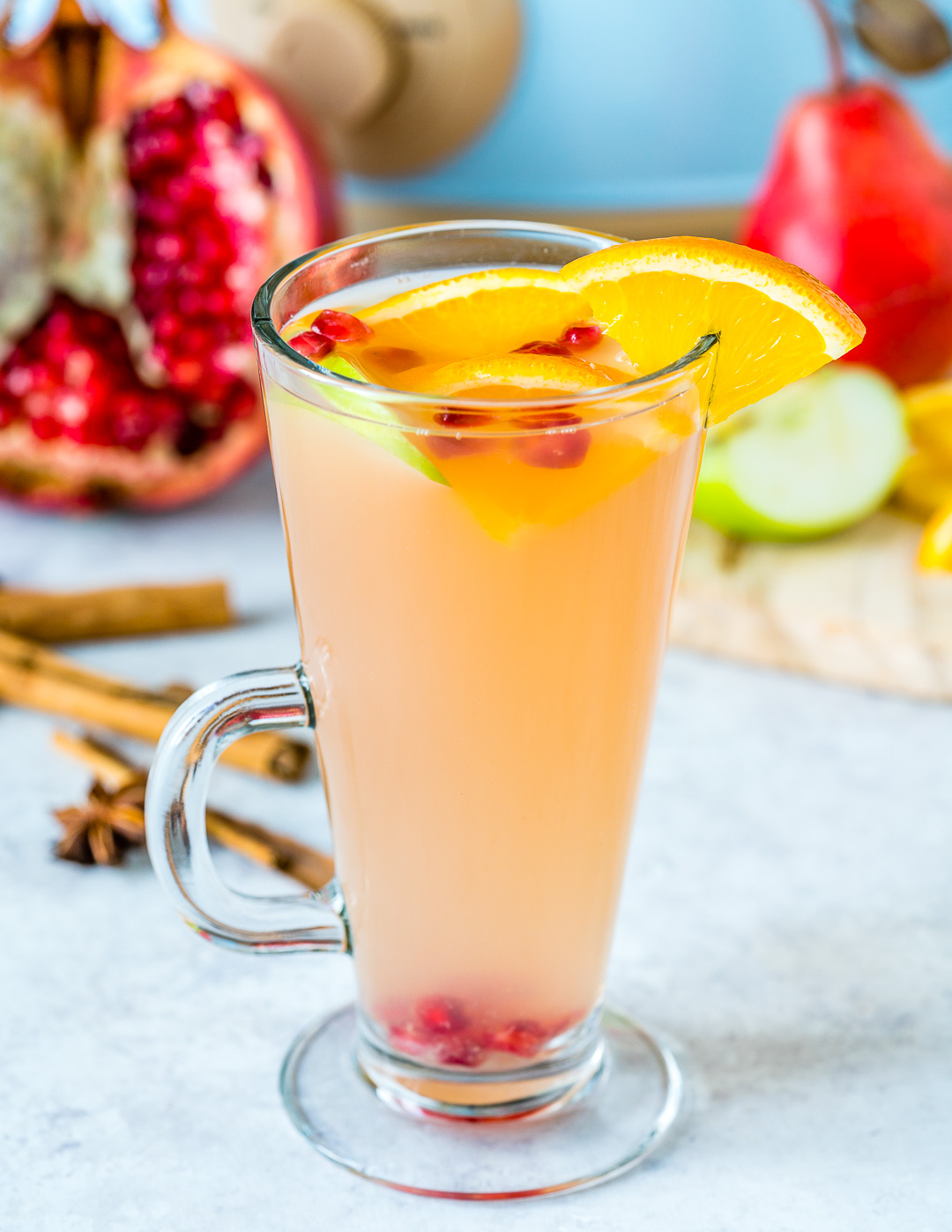
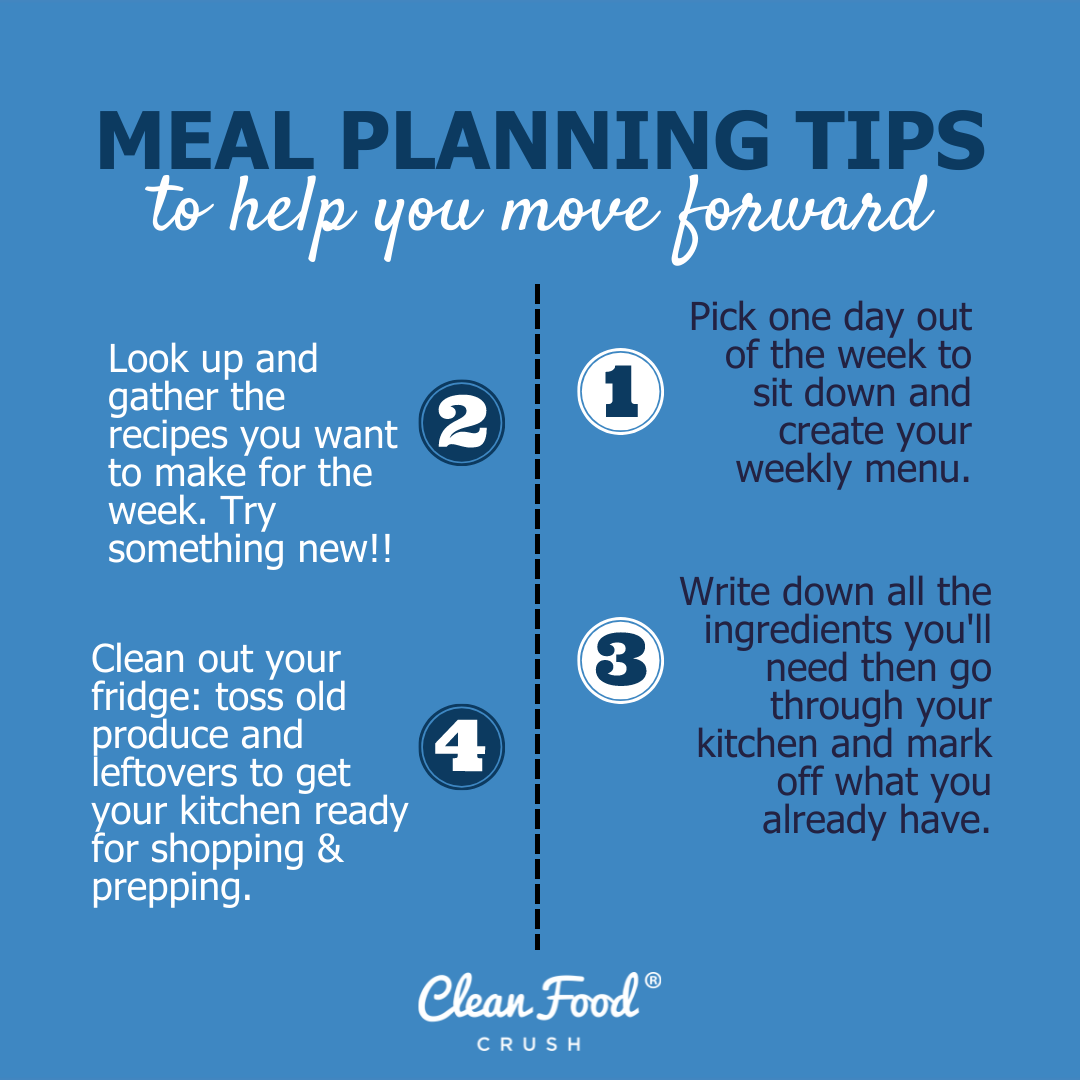

No comments:
Post a Comment